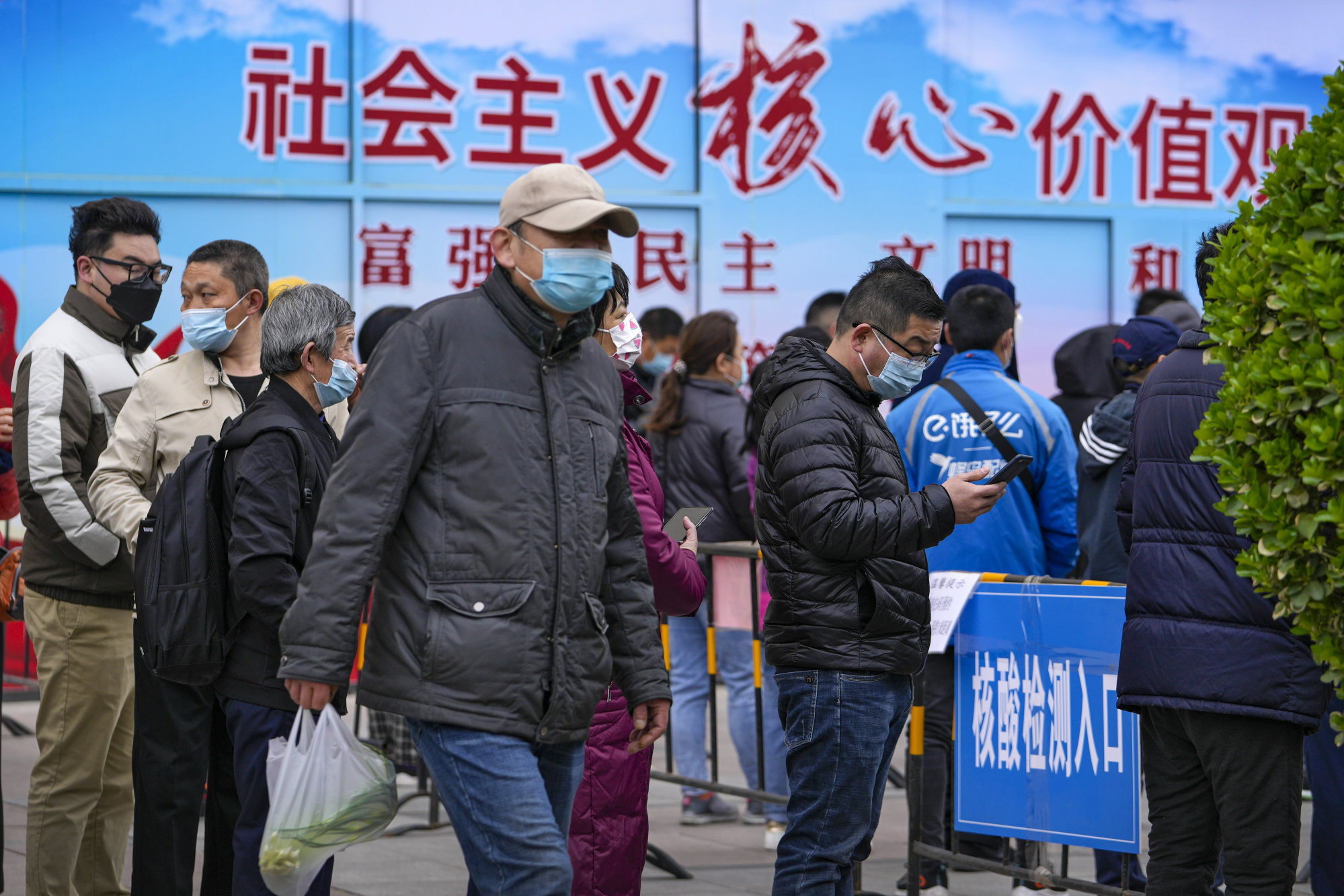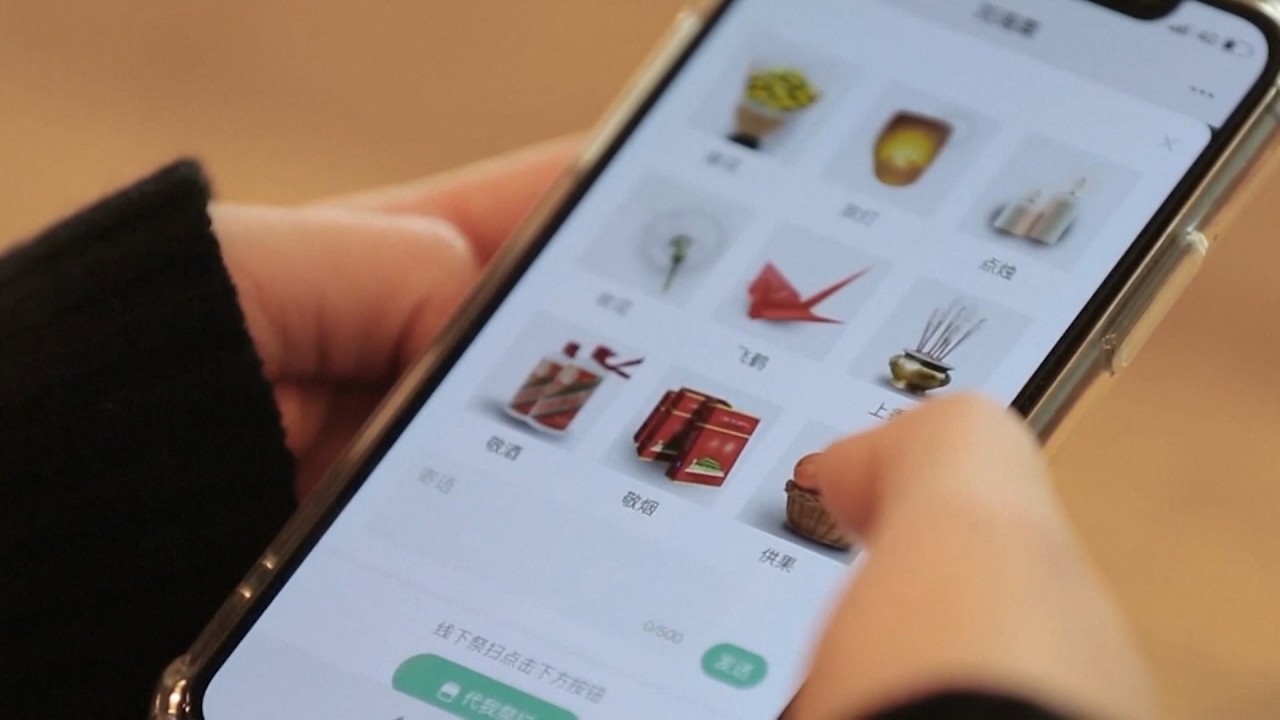
Beijing city authorities tighten Covid controls in effort to stop Omicron surge reaching Chinese capital
- The municipal authorities have introduced their strictest measures since early 2020, including more curbs on arrivals and wider quarantine regulations
- The restrictions follow a clear signal from the central authorities there will be no let-up in the ‘dynamic zero-Covid’ policy
Quarantine rules for residential areas have been tightened, affecting indirect contacts of positive cases as well as close contacts, while more people, including schoolchildren and care home residents, will have to take regular mass tests.
People from low-risk zones in mainland China must now report to their local communities or the hotels where they are staying within 12 hours of arrival and must take a PCR test within three days of arrival.
For the next seven days they are not allowed to attend mass gatherings and parties or enter public venues, although they are still allowed outside.
After that, they must provide their employers with a negative test result 48 hours before returning to the workplace.
Some residents have also complained that their communities have threatened to impose stricter restrictions when they return, such as seven days’ home quarantine.
The Beijing municipal government announced the measures on Wednesday after more than 200,000 infections were reported across China since the start of the current outbreak on March 1. The capital has reported 35 local infections in the past six days.
“Beijing is at a crucial moment for pandemic control,” Pang Xinghuo, the deputy director of Beijing’s disease prevention and control centre, told a press conference on Thursday.
The central government has been clinging to stringent measures to ward off the pandemic in the lead-up to the twice-a-decade national congress of the Communist Party this autumn – where President Xi Jinping is expected to secure an unprecedented third term as the party’s general secretary while the rest of the top leadership undergoes a major reshuffle.
Beijing only has 64 Covid-19 patients currently under treatment, but the surge in cases elsewhere has caused alarm bells to ring for local officials in the capital.
Shanghai has logged more than 120,000 local infections since March 1, while more than 62,000 have been reported in the northeastern province of Jilin.
On a visit to Shanghai on Wednesday, vice-premier Sun Chunlan, who is leading the national response to the pandemic, ordered the local authorities to follow Xi’s instructions closely and adopt tougher measures to squash the outbreak.
Steve Tsang, director of the SOAS University of London’s China Institute, said the Beijing city leadership would have seen what has happened in Shanghai and understands Xi’s priorities.
“Their careers depend on [following Xi’s policies]. This, I think, accounts for the excessive zeal with which the Beijing leadership deals with the current challenge,” Tsang said.
“It will not change unless Xi says it can be changed, which makes it very difficult, if not impossible, to happen before the 20th Congress. Xi would not want to let anyone say zero-Covid has failed at the Congress.”
The new policies mean that staff and residents in care homes for the elderly, school staff and pupils, as well as logistics firms handling imported goods have been added to the key groups who have to take mass Covid tests at least once a week.
The measures previously covered 13 industries ranging from catering and hairdressing to transport.
It has also tightened its screening of imported goods. From now on items including clothing and accessories, fruit and international mail will be subject to regular checks and disinfections.
These previously only applied to imported cold-chain foods, although most experts outside China have questioned the need to do this having largely dismissed the possibility of transmitting the virus in this way.
Meanwhile, people in quarantine venues or in buildings that have been sealed off after confirmed cases are reported will have to undergo mass PCR tests on the first and the fourth day of quarantine and conduct antigen tests by themselves on the second, third and fifth days.
After five days, those who are indirectly related to confirmed cases will be allowed to leave the building if they test negative and there are no new cases in the building, but further cases could see the block sealed off for another 14 days.
Tens of thousands people in Beijing are now estimated to have been quarantined after dozens of caselinked to a South Korean clothing story in the Wanjing district of the city.
Beijing residents said the Covid control measures have taken their toll on their everyday lives.
One man, named Zhou Zhen, who bought eye drops online said a message then popped up on his health code app telling him to take a Covid test and warning him he could not use the green code that allows him to enter public areas and buildings until he did.
“I was running out of eye drops to treat a pollen allergy. I didn’t know eye drops were among sensitive drugs linked to the treatment of Covid symptoms,” Zhou said.
“Beijing’s supervision system is such an intensive network that every activity of its residents is monitored. In the end, I had to be tested twice for Covid before my health code status was changed back to normal.”

Another resident, Li Zhiqi, said he had been trapped in Dongguan, a city in Guangdong for two weeks, waiting for his community in Beijing to approve his return from a business trip.
“I call my community party committee every day, saying I’m in a low-risk area and should be all right to come home under Beijing’s policy. But they kept trying to persuade me to stay put, saying they would probably place me under home quarantine to play safe,” Li said. “It’s ridiculous.”



